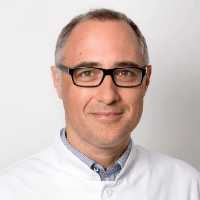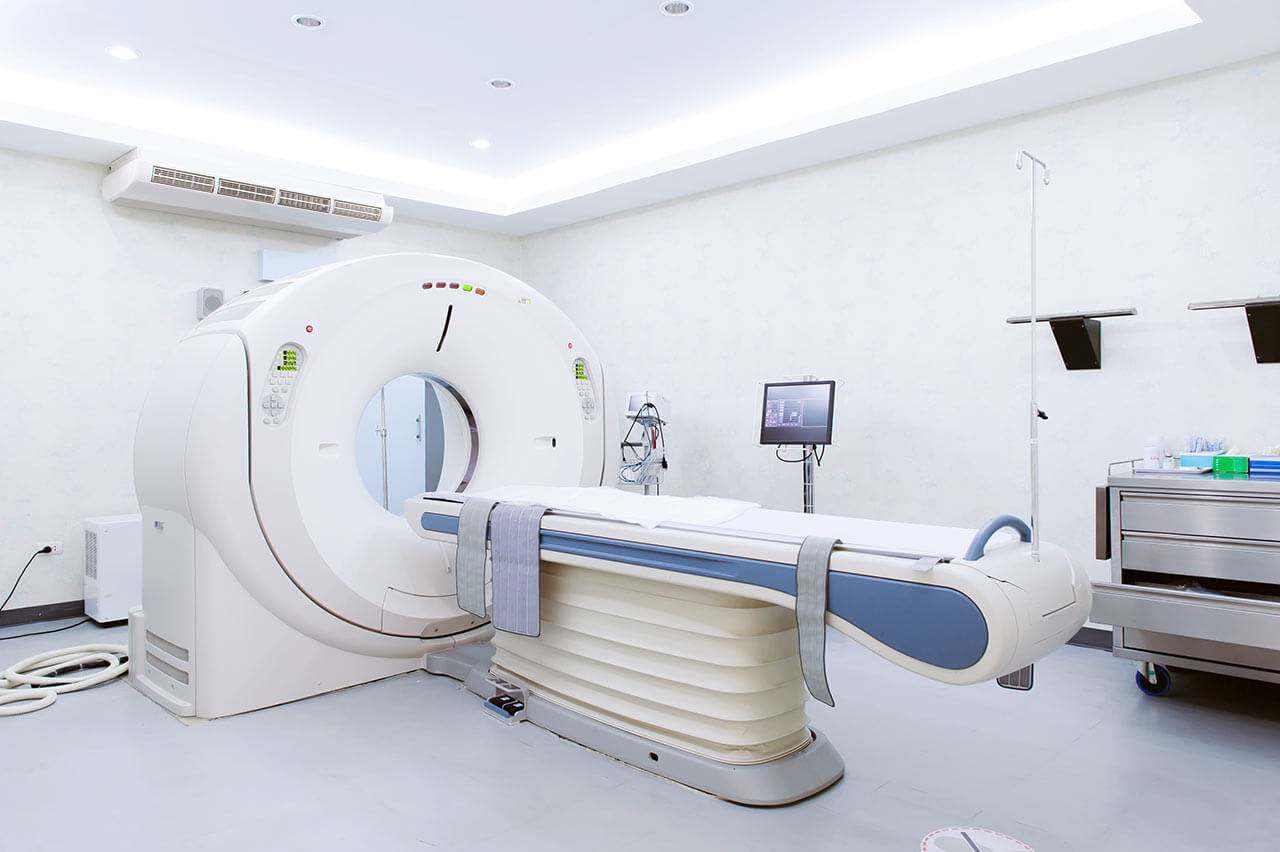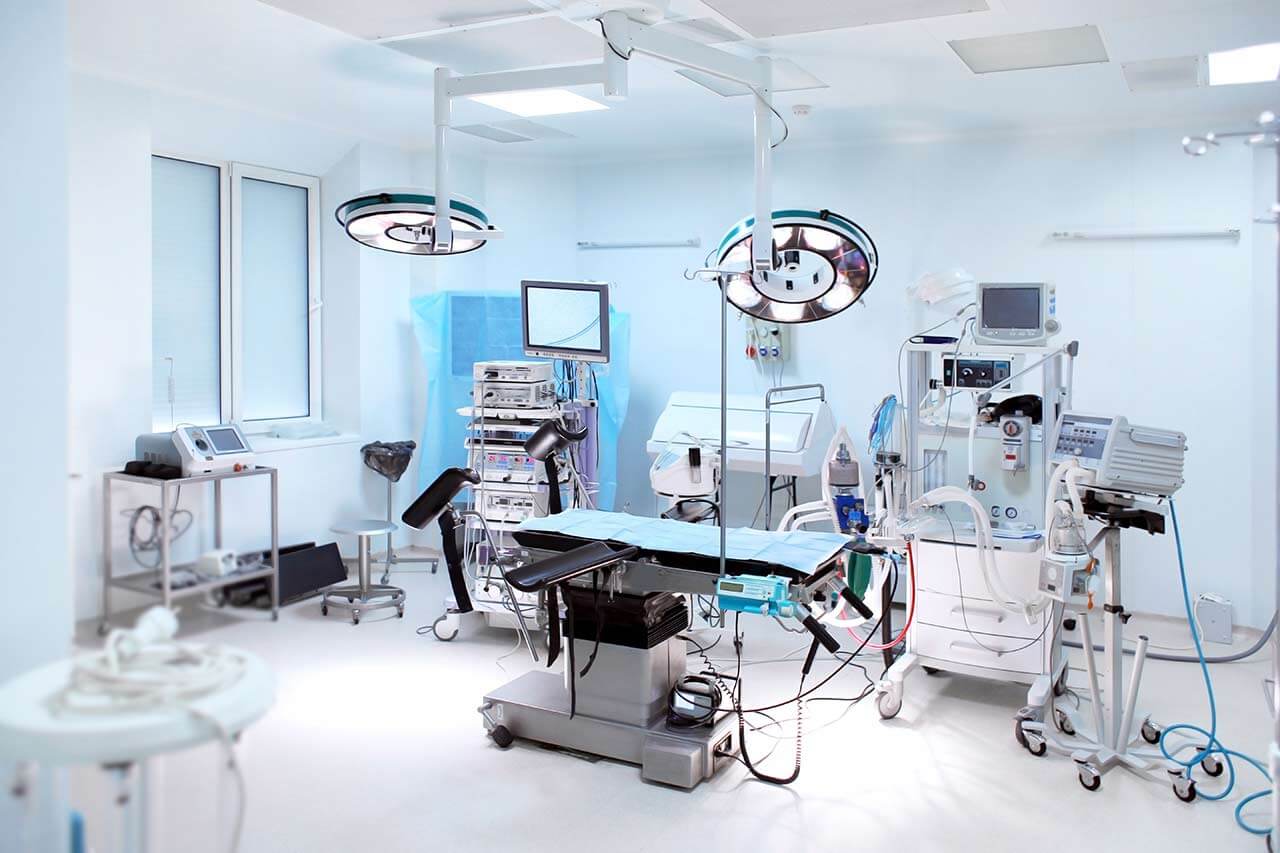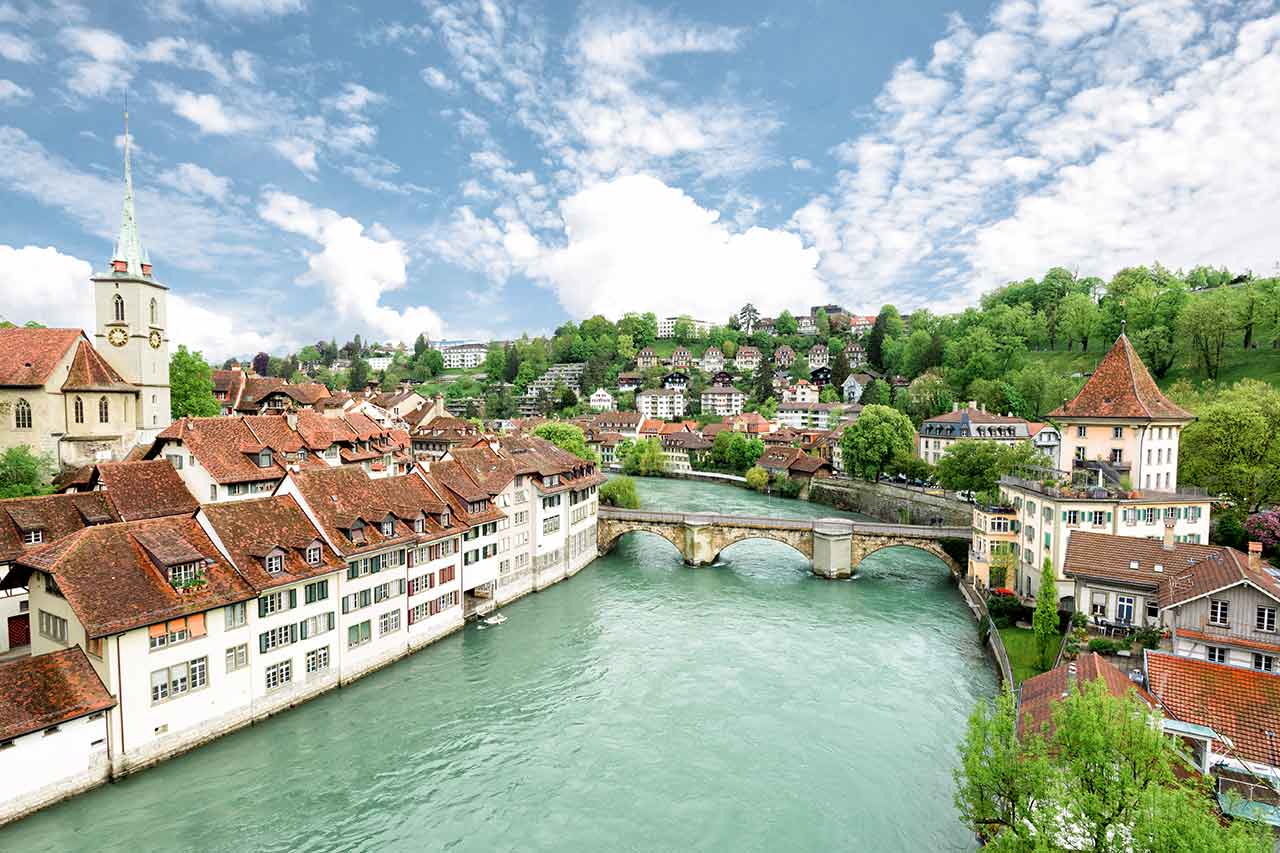
The program includes:
- Initial presentation in the clinic
- clinical history taking
- physical examination
- neurological examination:
- somatosensory evoked potentials
- reflexes
- muscle strength
- muscle tone
- senses of touch and sight
- coordination
- balance
- laboratory tests:
- complete blood count
- biochemical analysis of blood
- enzyme tests
- inflammation indicators
- BSG
- creatine kinase (CK)
- immunoelectrophoresis
- vitamin B12, vitamin D
- thyroid parameters
- parathormone
- genetic testing for bi-allelic deletion
of exon 7 of the SMN1 gene
- electromyography (EMG)
- brain and neck CT/ MRI
- muscle biopsy if indicated
- X-ray of the chest
- CSF puncture with nervous water examination
- cerebrovascular doppler ultrasound
- consultation of related specialists
- symptomatic specific treatment (the cost of Nusinersen is not included)
- the cost of essential medicines and materials
- nursing services
- control examinations
- full hospital accommodation
- developing of further guidance
Required documents
- Medical records
- Electromyography (if available)
- Muscle biopsy results (if available)
Service
You may also book:
 BookingHealth Price from:
BookingHealth Price from:
About the department
The Department of Adult and Pediatric Neurology at the Hirslanden Salem-Spital Bern offers all the options of modern diagnostics and conservative treatment of diseases of the nervous system. The department deals with the treatment of patients of various age groups, ranging from young children to adults and elderly patients. The department is headed by Prof. Dr. med. Bernhard Voller.
The clinical practice involves the use of advanced diagnostic systems for the comprehensive assessment of the condition and functions of the brain, spinal cord, peripheral nerves and muscles. In particular, these include recording of evoked potentials, electroencephalography, electroneuromyography, electromyography, neuropsychological examinations, lumbar puncture and cerebrospinal fluid analysis, ultrasound scanning of the head and neck vessels, MRI and other diagnostic examinations. The department also specializes in electroencephalography and electrophysiological examinations in children.
The department's specialists develop effective treatment regimens, which combine drug treatment, electrical stimulation, therapeutic massages, physiotherapy, etc. The therapy is prescribed individually, taking into account the needs and wishes of patients.
The medical service range of the department includes the diagnostics and treatment of the following neurological diseases:
- Alzheimer's disease
- Parkinson's disease
- Amyotrophic lateral sclerosis
- Spinal disc herniation
- Dementia
- Dystonia
- Epilepsy
- Essential tremor
- Hemifacial spasm
- Intracerebral hemorrhage
- Meningitis
- Brain tumors
- Idiopathic facial paralysis
- Carpal tunnel syndrome
- Migraines and tension headaches
- Multiple sclerosis
- Muscular dystrophy
- Myasthenia gravis
- Neuroborreliosis
- Polyneuropathy
- Paraplegia and spinal cord diseases
- Restless legs syndrome
- Traumatic brain injuries
- Stroke
- Trigeminal neuralgia
- Spinal stenosis
- Neurological diseases in children
- Epilepsy
- Headaches and backaches
- Movement disorders (for example, cerebral palsy)
- Malformations of the brain and spinal cord
- Impaired psycho-emotional development
- Other neurological pathologies
Curriculum vitae
Clinical Interests
- Movement disorders (Parkinson's disease, essential tremor).
- Botulinum toxin treatment (dystonia, head tremor, spasticity).
- Dizziness.
- Diseases of the peripheral nerves and muscles.
- Epilepsy.
- Headaches.
Qualifications
- 2015 Certificate of Competence in Electroencephalography, Austrian Society of Clinical Neurophysiology (ÖGKN) and Swiss Society of Clinical Neurophysiology (SGKN).
- 2006 Board certification in Neurology, Swiss Medical Association (FMH).
- 2006 Habilitation in Neurological (PD).
- 1998 Certificate of Competency in Electroneuromyography, Austrian Society of Clinical Neurophysiology (ÖGKN) and Swiss Society of Clinical Neurophysiology (SGKN).
Professional Career
- 2006 - 2015 Head of the Department of Neurology, University Hospital Vienna.
- 2009 - 2015 Private Neurological Practice in Vienna.
- 2004 - 2006 Work in the Department of Neurology, University Hospital Vienna.
- 2002 - 2004 and 2011 - 2012 Research on Dystonia, Tremors and Neurological Rehabilitation, National Institute of Neurological Disorders and Stroke, Bethesda, Maryland, USA.
- 1998 - 2001 Work in the Department of Neurology, Department of Internal Medicine, Department of Psychiatry, University Hospital Vienna.
- 1997 - 1998 Work in the Department of Neurology, Landeskrankenhaus Hochzirl.
- 1995 - 1997 Work in the Department of Neurology, University Hospital Innsbruck.
Memberships in Professional Societies
- Swiss Neurological Society (SNG).
- Austrian Society of Neurology (ÖGN).
- Austrian Parkinson’s Disease Society (ÖGP), Board Member.
- Austrian Society of Clinical Neurophysiology (ÖGKN).
- Austrian Society of Neurorehabilitation (ÖGNR), Board Member.
- Vienna Association for Psychiatry and Neurology (Former Secretary).
- International Parkinson and Movement Disorder Society (MDS).
- American Academy of Neurology (AAN).
- World Federation for NeuroRehabilitation (WFNR).
Photo of the doctor: (c) Hirslanden AG
About hospital
The Hirslanden Salem-Spital Bern enjoys the status of a modern medical facility, which work is based on the highest medical standards, a humane and respectful attitude towards patients. The history of the health facility began back in 1888, when it functioned with the assistance of the Deaconess Foundation. In 2002, the hospital became part of the well-known Network of Swiss Hirslanden Medical Centers, which diagnose and treat patients in all fields of modern medicine. The Hirslanden Network has 18 clinics across the country. The hospital has 163 beds for the hospitalization of patients. The medical complex also includes 7 high-tech operating rooms and 4 excellently equipped delivery rooms.
The hospital’s key areas of specialization are orthopedics and traumatology, spinal surgery, gynecology and obstetrics.
The quality of medical services is monitored through an effective quality management system. Since 2010, the hospital regularly openly publishes all indicators of clinical activities, which helps to increase patient confidence.
The hospital is located in the central and at the same time quiet part of the beautiful Swiss city of Bern. The windows of the patient's rooms overlook the beautiful views of the Old City and fascinating alpine landscapes. The medical institution is also proud of its own spacious garden where one can stroll along the pond, relax and gain strength. All these details, combined with the excellent quality of medical service, guarantee the best treatment results and comfort.
Photo: (с) depositphotos
Accommodation in hospital
Patients rooms
The patients of the Hirslanden Salem-Spital Bern live in comfortable rooms made in a modern design. Each patient room has an ensuite bathroom with shower and toilet. The standard patient room includes an automatically adjustable bed, a bedside table, a table, a chair, an armchair, a TV and a telephone. If desired, one can connect to Wi-Fi. The hospital also offers accommodation in the enhanced-comfort patient wards, which are additionally equipped with a safe, a refrigerator and upholstered furniture.
Meals and Menus
The patient and the accompanying person are offered a daily choice of three menus. If you are on a specific diet for any reason, you will be offered an individual menu. Please inform the medical staff about your dietary preferences prior to the treatment.
Further details
Standard rooms include:
Religion
The religious services can be provided upon request.
Accompanying person
During the inpatient program, an accompanying person may stay with the patient in the room or at a hotel. Our managers will help you choose the most suitable option.
Hotel
During the outpatient program, the patient may stay at the hotel. Our managers will help you choose the most suitable option.




